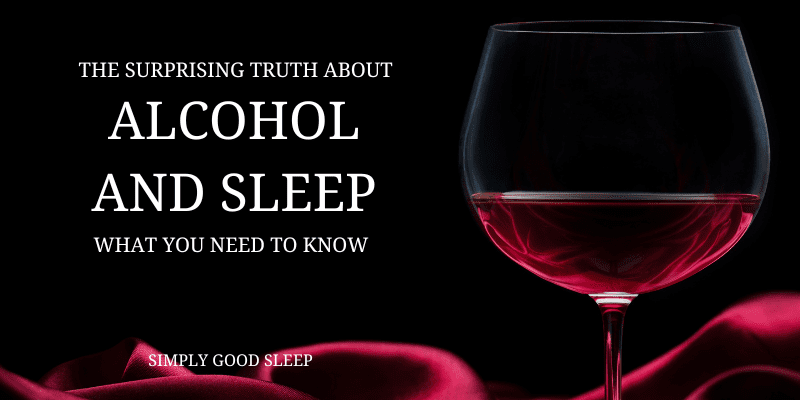
We’ve all heard that a nightcap can help you unwind and drift off to dreamland, but how much truth is there to this common belief? Let’s dive into the fascinating relationship between alcohol and sleep and uncover how that evening drink really impacts your nightly rest.
The Nightcap Myth: Does Alcohol Really Help You Sleep?
At first glance, alcohol might seem like the perfect sleep aid. After all, it can make you feel drowsy and relaxed. But the truth is a bit more complex. While alcohol can indeed help you fall asleep faster, it doesn’t necessarily mean you’ll sleep well.
How Alcohol Affects Your Sleep Cycle
To understand how alcohol affects sleep, it’s important to know a bit about your sleep cycle. Your body goes through different stages of sleep, including REM (Rapid Eye Movement) and non-REM sleep. Both stages are crucial for a good night’s rest.
Here’s the kicker: alcohol disrupts your sleep cycle, particularly the REM stage, which is when you dream and your brain processes information. When you drink, you spend less time in REM sleep, leading to a restless night and leaving you feeling groggy and unfocused the next day.
The Science Behind Alcohol and Sleep
Alcohol is a sedative, so it’s no surprise that it can make you feel sleepy. However, as your body metabolizes the alcohol, it can cause disruptions in your sleep.
These disruptions can lead to:
- Frequent Waking: You might wake up several times during the night without even realizing it.
- Restless Sleep: Your sleep might be lighter and less restorative.
- Early Morning Wakefulness: You might wake up earlier than usual and find it hard to fall back asleep.
The Long-Term Effects of Alcohol on Sleep
Regularly using alcohol as a sleep aid can lead to more serious sleep issues over time. Chronic sleep disruption can contribute to a range of health problems, including:
- Insomnia: Persistent difficulty falling and staying asleep.
- Sleep Apnea: A serious condition where breathing repeatedly stops and starts during sleep.
- Decreased Sleep Quality: Overall poorer quality of sleep, leaving you tired and irritable.
Tips for Better Sleep Without Alcohol
If you’re looking to improve your sleep without relying on alcohol, here are some tips that can help:
- Create a Relaxing Bedtime Routine: Wind down with calming activities like reading or taking a warm bath.
- Maintain a Consistent Sleep Schedule: Go to bed and wake up at the same time every day, even on weekends.
- Limit Caffeine and Heavy Meals: Avoid caffeine and heavy meals close to bedtime.
- Create a Comfortable Sleep Environment: Keep your bedroom cool, dark, and quiet.
- Exercise Regularly: Regular physical activity can promote better sleep.
Conclusion: The Bottom Line on Alcohol and Sleep
While that evening drink might make you feel sleepy, it’s not the best solution for quality rest. Understanding the complex relationship between alcohol and sleep can help you make better choices for your health and well-being. For truly restful nights, consider adopting healthier sleep habits and giving the nightcap a pass.
Sleep well, stay healthy, and enjoy your nights without the booze!
